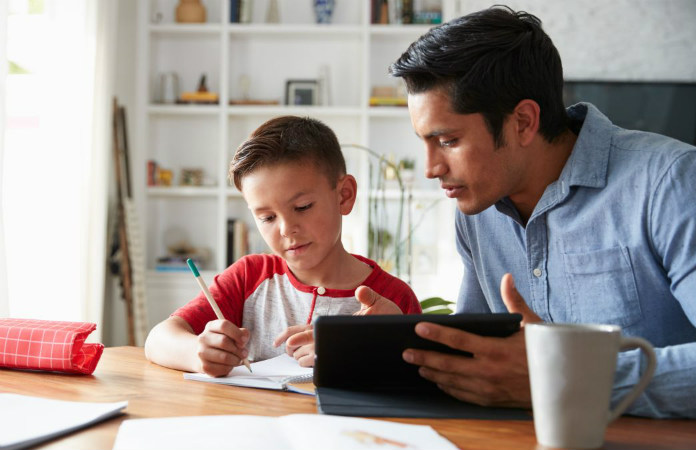Right from birth, children learn by playing and discovering in a safe and motivating environment. You have a dynamic role in what your child learns during these early years.
Though children are born prepared to discover, early learning at home has a holistic role in their crucial growing years. With the right tools and techniques, make it fun and more effective. Here’s what your kid will learn from an early childhood education program:
Language and Communication Skills
When you talk and listen to your children, sing songs, or read storybooks, they learn about language. They learn about their turn to talk, how to listen, and how to speak.
Since you are not experienced at teaching, you can use workbooks and images to help your children learn interestingly. Your child will slowly learn about the alphabet, recognizing numbers, and words.
Environmental Awareness
Children start observing everything that happens around them right from the day they are born. As a parent, it is your responsibility to ensure a healthy environment for them.
The environment includes social and physical elements. These include people, things, and places. Consideration of your child’s surroundings is necessary for forming an environment where learning and comfort are enhanced.
Your children can learn fast and properly only in an optimal setting. Such an environment is favourable to learning and development. You can use sensory words, toys, colours, things, and touch to help your child learn.
Once you use the correct objects or materials in a flexible and friendly environment, children will learn better. You can use videos and images that are specifically designed for early learning at home. Your child will find such material relatable to understand the environment.
Creativity Skills
Your children learn creativity when they use the material that is interesting and fun. You can endorse creativity with music, videos, images, and flashcards. Once your children repeatedly listen to the same music or see the same image, they develop a concept in their mind.
These are the baby steps that take your child toward creativity and innovative thinking. They start to think broadly and use new characters, numbers, colours, objects, and words in their conversations.
Promote learning through play, and challenge your children to think creatively. You can use sand, building blocks, art stuff, online books, writing materials, scientific and mathematical tools for this purpose. By using these tools, you can make learning more creative. You can also consider no fuss tutors – math tutor for your child to help him/her understand the concepts of maths.
Solving Problems
At play, kids take learning into their hands. Using their new ideas, they create, collaborate with you, and learn problem-solving skills. Since you use early learning tools like stories, videos, images, play cards, and toys, they develop an interest in everything.
Once the children are interested in things they see, sounds they hear, and objects they touch, they understand the concepts. They devise their way of solving problems and learn a significant life skill.
Hence, early learning at home is a holistic procedure, and your children can learn much more than you think at a younger age. Furthermore, it is more about how you help them learn, understand, and grow at this tender age.
